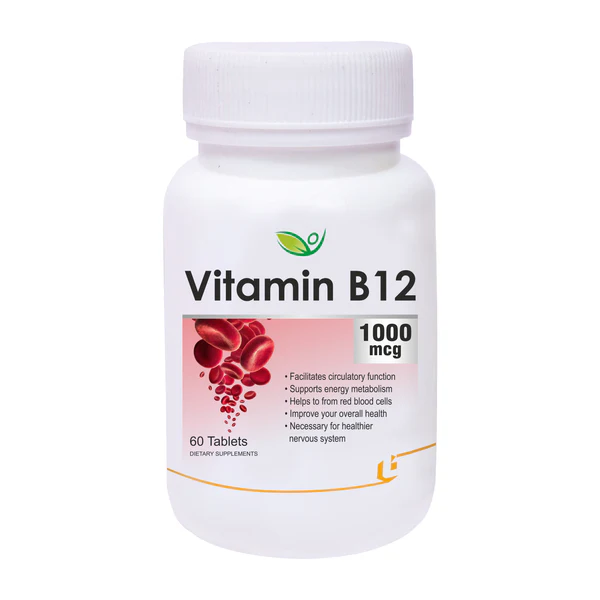
Contract manufacturing has become a cornerstone of the Nutraceuticals industry, allowing companies to focus on innovation, marketing, and customer engagement while relying on third-party manufacturers to produce their products. In the context of vitamin B12—a critical nutrient for human health—the role of contract manufacturing is even more significant. This article will delve into the benefits, challenges, and essential considerations of contract manufacturing in the production of vitamin B12 Nutraceuticals.
Understanding Nutraceuticals and Vitamin B12
Nutraceuticals refer to food-derived products that provide health benefits beyond basic nutrition. They can include dietary supplements, functional foods, and other products intended to support health and wellness. Vitamin B12, or cobalamin, is a crucial nutrient for energy metabolism, nerve function, and red blood cell formation. It is naturally found in animal-based foods like meat, fish, and dairy, but many people rely on supplements to meet their daily requirements, especially vegetarians, vegans, and the elderly.
The increasing demand for vitamin B12 supplements has led many nutraceutical companies to explore contract manufacturing. This approach enables them to produce high-quality products while concentrating on research, development, and marketing efforts.
The Role of Contract Manufacturing in Vitamin B12 Nutraceuticals
Contract manufacturing in the nutraceuticals industry involves outsourcing production to specialized companies with the equipment, expertise, and regulatory knowledge to produce high-quality supplements. The advantages of this approach for vitamin B12 nutraceuticals include:
1. Specialized Expertise: Contract manufacturers often have extensive experience in producing specific types of nutraceuticals, like vitamin B12 supplements. They understand the nuances of manufacturing processes, such as fermentation or chemical synthesis, to produce high-purity vitamin B12.
2. Regulatory Compliance: Nutraceuticals are subject to strict regulations, especially in countries like the United States, where the FDA enforces Good Manufacturing Practices (GMP). Contract manufacturers that specialize in dietary supplements understand these regulations and have systems in place to ensure compliance.
3. Cost Efficiency: Building and maintaining manufacturing facilities can be costly. By outsourcing production, nutraceutical companies can reduce capital expenditure and operational costs. Contract manufacturers benefit from economies of scale, enabling them to produce at a lower cost per unit.
4. Quality Assurance: Quality is paramount in the nutraceuticals industry. Contract manufacturers typically have comprehensive quality control systems, including raw material testing, in-process monitoring, and final product testing. This focus on quality helps ensure that vitamin B12 supplements meet or exceed industry standards.
5. Flexibility and Scalability: Contract manufacturers can adapt to changing production needs, allowing nutraceutical companies to scale up or down as demand fluctuates. This flexibility is particularly useful for companies launching new products or facing seasonal variations in sales.
Key Considerations for Contract Manufacturing of Vitamin B12
While contract manufacturing offers numerous benefits, nutraceutical companies must carefully evaluate potential partners and establish robust processes to ensure a successful partnership. Key considerations include:
1. Quality Control and Assurance: Companies should assess the quality control systems of potential contract manufacturers. This includes evaluating their testing procedures, certifications, and track record of compliance. Certifications like ISO 9001 and NSF International can indicate a strong commitment to quality.
2. Regulatory Compliance: Nutraceuticals are regulated differently across regions, with varying requirements for labeling, safety, and manufacturing practices. Companies should ensure that their contract manufacturers are familiar with the applicable regulations and can demonstrate compliance through audits or certifications.
3. Communication and Collaboration: Effective communication is crucial in contract manufacturing relationships. Companies should establish clear lines of communication with contract manufacturers to address any issues promptly. Regular meetings, site visits, and audits can foster a collaborative partnership.
4. Intellectual Property Protection: When outsourcing manufacturing, companies must protect their intellectual property, including product formulations and proprietary processes. Non-disclosure agreements (NDAs) and other legal safeguards can help protect confidential information.
5. Supply Chain Management : A reliable supply chain is essential for contract manufacturing. Companies should consider the contract manufacturer’s sourcing practices, transportation logistics, and contingency plans to ensure a steady supply of raw materials and components.
Challenges in Contract Manufacturing for Vitamin B12 Nutraceuticals
Despite its advantages, contract manufacturing presents challenges that nutraceutical companies must address to maintain product quality and regulatory compliance. Some common challenges include:
1. Quality Control Risks: Relying on third-party manufacturers introduces risks related to quality control and consistency. Nutraceutical companies must maintain oversight of contract manufacturers and implement rigorous quality assurance processes to mitigate these risks.
2. Regulatory Changes: Nutraceutical regulations can change over time, impacting manufacturing practices. Companies must stay informed about regulatory developments and work closely with contract manufacturers to ensure ongoing compliance.
3. Supply Chain Disruptions : Contract manufacturing relies on a stable supply chain. Disruptions due to global events, transportation issues, or raw material shortages can affect production schedules. Nutraceutical companies should have contingency plans to address these risks.
4. Cost Variability: Contract manufacturing costs can vary due to fluctuations in raw material prices, transportation costs, or other factors. Companies should work with contract manufacturers to establish clear pricing structures and consider long-term contracts to stabilize costs.
Conclusion
Contract manufacturing plays a crucial role in the production of vitamin B12 nutraceuticals, providing specialized expertise, cost efficiency, and regulatory compliance. However, successful partnerships require careful planning, effective communication, and a strong focus on quality assurance. By addressing key considerations and navigating potential challenges, nutraceutical companies can leverage contract manufacturing to deliver high-quality vitamin B12 supplements to consumers while focusing on their core business objectives.
